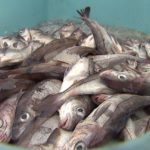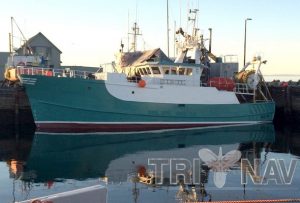Tag Archives: Right whale
Maine lobster industry reacts to right whale found entangled in rope
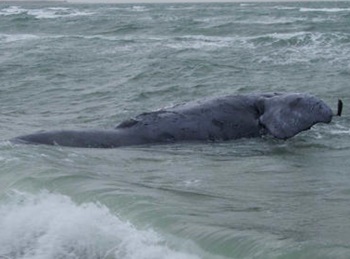 Maine’s lobster industry is responding following the discovery of a dead North Atlantic right whale near Martha’s Vineyard last month. According to federal authorities, the whale was entangled in fishing rope, including portions traced back to Maine. While NOAA has yet to determine the exact cause of the whale’s demise, Maine lobstermen are fearing potential blame. “They’re going to say that the rope, you know, caused harm to the whale, and over time, it just was a very slow death,” said John Drouin, a Lobsterman from Cutler with over 40 years of experience. The incident marks the first documented interaction between a right whale and Maine fishing gear in over two decades. more, >>click to read<< 11:49
Maine’s lobster industry is responding following the discovery of a dead North Atlantic right whale near Martha’s Vineyard last month. According to federal authorities, the whale was entangled in fishing rope, including portions traced back to Maine. While NOAA has yet to determine the exact cause of the whale’s demise, Maine lobstermen are fearing potential blame. “They’re going to say that the rope, you know, caused harm to the whale, and over time, it just was a very slow death,” said John Drouin, a Lobsterman from Cutler with over 40 years of experience. The incident marks the first documented interaction between a right whale and Maine fishing gear in over two decades. more, >>click to read<< 11:49

New Right Whale Endangered Species Condom Distributed for World Ocean Day
The Center for Biological Diversity will head to Capitol Hill on Wednesday, June 8 to distribute endangered species condoms in honor of World Ocean Day and mark the 50th anniversary of the Marine Mammal Protection Act. Center staff will hand out newly designed right whale condom packages with the slogan “Cover your spout… don’t let the right whale die out.” The new right whale design is part of the Center’s Endangered Species Condoms campaign, which draws attention to how human population growth is affecting critically endangered species. >click to read< 10:55
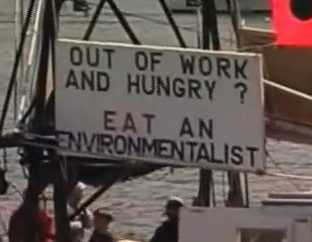
Fed appeals court reinstates lobster gear restrictions off Maine’s coast
A federal appeals court is reinstating restrictions on fishing gear in a nearly 1,000-square-mile swathe of ocean off Maine’s coast. In October, in an effort to protect the roughly 340 right whales remaining on the planet from potentially deadly entanglements with fishing gear, the federal government imposed a four-month restriction on the use of trap-rope in the area. Before the restrictions took effect, the Maine Lobstering Union won a stay from a U.S. district judge in Bangor. But Late Tuesday, a federal appeals court in Boston ruled that the lower court overstepped its authority. >click to read< 10:16
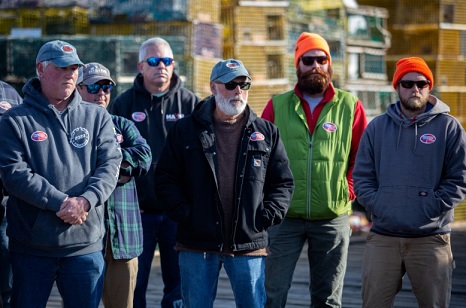
Maine lobstermen appeal to the public to fund legal fight against federal regulations
Without the financial means to fight both the government and environmental activists, lobstermen said their very existence is at stake. Lobstermen speaking at the press conference (today) said they feared the offshore regulations currently proposed would creep inshore, where most of them fish, eventually choking off their livelihoods. They also stressed how much money their industry brings into the state and how it supports communities beyond fishermen. According to the Maine Department of Marine Resources, Maine’s 2020 lobster catch was worth $406 million. That was down from $491 million in 2019. “That’s why we need everyone to step up and help us save the fishery,” photos, >click to read< 17:59

Held Hostage For Ropeless? Reject the Pew Petition for 3 lobster area closures that protect no Right Whale!
Maine Delegation Calls on Commerce Secretary to Reject Petition for Seasonal and Dynamic Closures in Parts of Maine’s Lobster Fishery – Maine’s congressional delegation today pressed Commerce Secretary Gina Raimondo to reject a petition by the Pew Charitable Trusts to impose seasonal and dynamic closures on parts of Maine’s lobster fishery. The lawmakers’ objections centered on the limited effects the closures would have on protecting right whales at significant economic cost on lobstering communities up and down the state’s coast. The rulemaking proposed in the petition would close three different areas of Lobster Management Area 1 to vertical line trap fishing. Pew proposed opening those areas to ropeless fishing, ignoring the reality that ropeless technology is not commercially available, financially viable for lobstermen, or proven safe and effective. >click to read<. Read a copy of the letter here.

Richard “Max” Strahan attempted to intervene in right whale case with court injunction
An animal rights activist made a late attempt to try and stop the industry from being allowed to use vertical buoy ropes. Richard “Max” Strahan tried to intervene at the beginning of the month in the federal right whale court case that holds the future of the lobster industry in its hands, but the activist’s attempt was rejected by a judge less than a week later. Strahan filed his motion on May 8 and claimed that the only way the industry would stop using the ropes is by a court-ordered injunction. >click to read< 16:03

Well, hush my puppies! Georgia Con groups boycott New England Lobster Industry
Maine’s lobster industry is keeping a wary eye on a consumer boycott launched in the state of Georgia. Conservation groups there charge that New England’s lobster gear and trap-rope risk entangling and killing endangered right whales, and they say seafood lovers should choose other options. Alice Keyes, the coastal conservation director for an organization called 100 Miles, so-named for Georgia’s hundred-mile shoreline. The campaign is called “Eat Local, Not Lobster”. “I hope consumers are smarter than falling for these false campaigns,” says Patrice McCarron, the Maine Lobstermen’s Association executive director. >click to read< 09:25
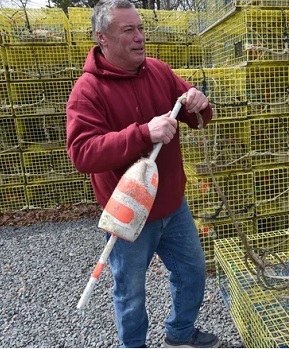
Right whale protection regs leave Cape fishermen feeling trapped
His house on the quarter-acre lot is nearly surrounded by gravel, with bright yellow and black fishing traps neatly stacked all around. Tolley is gearing up for the fishing season, is headed for a hip replacement in a month, but that wasn’t his only concern. New state regs require that he fit the buoy lines on all 1,200 of his lobster, conch and black sea bass traps with special sleeves that release under the pressure of an adult whale. “I don’t want to see a right whale entangled,”,,, He worries about the financial pressures imposed on him and other fishermen by regulations >click to read< 13:42

District Court judge denies injunction that would shut down lobster and gillnet fishing in Massachusetts
In a hearing Thursday in United States District Court, Judge Indira Talwani denied an injunction that would have shut down lobster and gillnet fishing in Massachusetts to protect critically endangered North Atlantic right whales until a trial seeking that closure takes place. Richard “Max” Strahan, who identifies himself in court documents as a lobster fishermen, whale watcher and “protector of endangered wildlife species,” sued the state Office of Energy and Environmental Affairs last April under the federal Endangered Species Act. >click to read< 11:41
Gloucester: Lobstermen push against whale rules – ‘We’ve borne the brunt’ – >click to read<

New England: Judge Says He’ll Decide Within 2 Weeks When Feds Issue New Right Whale Protection Rules
The federal government and the lobster industry say any change should wait until May 2021 to allow for full review and public comment on new rules once they are proposed. In oral arguments before U.S. District Court Judge James Boasberg Monday, their lawyers argued that the courts should not be in the business of micro-managing the fishery.,, The conservation groups are also calling for an immediate and year-round ban on fishing with rope in an area off Nantucket where the whales have been congregating in recent years. But a lawyer for the Maine Lobstering Union, Alfred Frawley, argued that would cause unwarranted economic harm, because the whales are known to be present mostly for a limited period in the spring. >click to read< 08:14
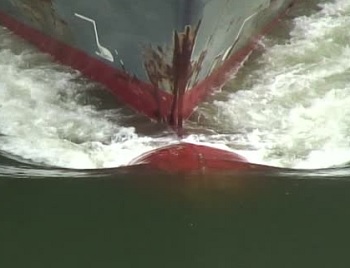
Ships not complying with right whale protections in Cabot Strait
Oceana Canada has released one week of results from its ongoing study, which is assessing data from vessels travelling inside speed restriction zones. Between May 19 and May 25, 72 per cent of vessels recorded passing through the strait between Newfoundland and Nova Scotia were observed travelling at speeds above the requested 10 knots, with the highest observed at 21.1 knots. The findings will be part of a fuller study to be released in July that will look at the first trial period of the speed restriction. >click to read< 17:55

Con groups propose total lobster fishing ban
According to the Center for Biological Diversity and several other plaintiff conservation groups, the area “has increasingly become important right whale foraging and socializing habitat in recent years.” The conservation groups filed their request last Friday, three weeks after the judge ruled that the National Marine Fisheries Service (NMFS) violated the federal Endangered Species Act when it continued to allow lobster fishing with gear that used fixed vertical buoy lines in which whales could become entangled. As a practical matter, a ban on the vertical lines that connect traps on the sea floor to marker buoys on the surface would amount to a total prohibition against lobster fishing in the area south of the two Massachusetts islands. While scientists at the Woods Hole Oceanographic Institution and a few others have experimented with “ropeless” lobster trap gear (laughter and scorn, erupts from the crowd),,, >click to read< 09:18
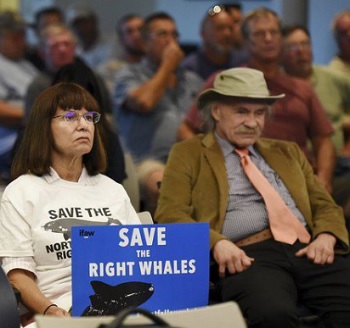
Activist Seeks Preliminary Injunction To Halt Lobster Fishing In Maine
There are new developments Friday in the legal battle over whether rope used by Maine lobstermen poses a deadly threat of entanglement to endangered North Atlantic right whales. Richard Strahan’s case is similar to one he brought in Massachusetts, where a federal judge ruled recently that the lobster fishery there violates the Endangered Species Act. Strahan says state governments and NOAA have deliberately ignored the law. In another case, a coalition of conservation groups late Friday filed their proposals for protecting the right whales. That’s after a judge’s finding that the federal government violated the Endangered Species Act by failing to stall the whales’ slide toward extinction. The Conservation Law Foundation and others say the judge should immediately bar use of vertical rope,,, >click to read< 11:42
Massachusetts Lobstermen push against whale rules – Aug 22, 2019 >click to read<
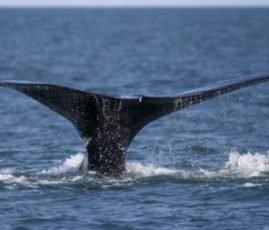
North Atlantic Right whale trouble: Lawsuit on protections could last for months
Environmental groups sued the U.S. government with a claim that regulators’ failure to protect the North Atlantic right whale from harm was a violation of the Endangered Species Act, and U.S. District Judge James Boasberg ruled April 9 that they were right. The government, environmentalists and industry members who are involved in the lawsuit must still return to court to determine a remedy. Boasberg ruled that the risk posed to the whales by the lobster fishery was too great to be sustainable, and that a remedy could ultimately result in new restrictions on lobster fishing. Members of the industry, including the Maine Lobstermen’s Association, have vowed to fight to protect the fishery. >click to read< 11:27

Scientists weigh in on whale risk tool!
The word is out, almost, on what a panel of independent scientists thinks about the controversial “decision support tool” used by NOAA’s National Marine Fisheries Service last spring when it drafted proposed rules aimed at protecting endangered North Atlantic right whales and other large marine mammals from entanglement with fishing gear. When the fisheries service made its decision last spring on how best to reduce the risk to whales, it relied on a “decision support tool” based on a poll of Atlantic Large Whale Take Reduction Team (TRT) members, rather than extensive data collected over the years, as to where the whales are found and how much interaction there has been between them and Maine lobster gear. >click to read< 11:31
Decision Support Tool Helpful to Those Finding Ways to Reduce Whale Entanglement in Fishing Gear – From NOAA! >click to read<
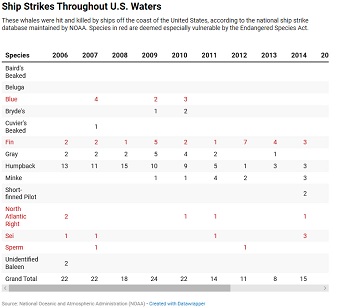
‘Ship Strikes’ Killing Whales! A voluntary slow-down program for passing ships is frequently ignored
According to NOAA, these “ship strikes” are blamed for at least 88 whale deaths in California. Since 2006, 239 whales were killed in all U.S. waters over the same time period. Of those whales killed, nearly one in three was a member of an endangered species. Scientists, however, believe the true number of deaths is far higher than the official counts. “The majority of reported ship strikes probably represents a tenth or less of the true number occurring,” said Calambokidis. “The majority of whales that die, in fact, sink and disappear and are never documented.” Check the chart that says how many estimated by NOAA! >click to read< 14:16

If the info comes from some enviro group, its good! Info from the lobster fishermen? Not good!
We’re out fishing for news as always, and we never know what we’ll find. Saw this letter to the editor: Whales, and realized this letter is a by-product of the enviro group anti-fishing campaign.,,, From the letter, In the editorial you say, “According to the Maine Lobstermen’s Association analysis of data …” Seriously? We are going to rely on their analysis to risk the extinction of a highly evolved mammal? The editorial further reads, “Only 8 percent (of right whale deaths) resulted from entanglement in trap or pot fishing gear,,, >click to read< 11:34
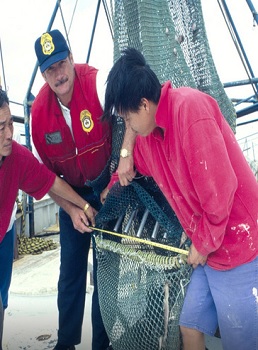
Turtlegate: Net Escape Doors Versus the Doors of Government
This week, a 50 pound Loggerhead was rescued on Cape Cod.,, Kemp’s Ridley turtles are endangered and although it cannot be confirmed if there is a direct connection between these cold-stunning incidents and interaction with fishing boats, trawler net entanglement remains the number one culprit for sea turtle trauma and mortality. huh! Let’s turn our attention to this critical man-made danger that affects all ocean mammals and sea life in general,,, we see where this is going, >click to read< 09:33
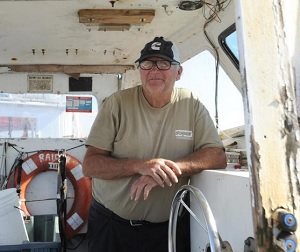
Truro lobsterman says rules to protect right whales costly to his business
Cheryl Souza is ending her lobster sales after October. But third-generation lobsterman Billy Souza, as it turns out, is considering quitting as well. “It’s all the whale issues,” Souza said. Unlike the lobstering in the days of Souza’s grandfather, Frank Souza, and his father, William Souza, the current generation fishing off Cape Cod is under an intense and unique scrutiny..,, “The whales could get entangled anywhere in the world, but there’s so many eyes on them here it looks like we’re the bad guys and we’re not.” >click to read< 07:38

Politics & Other Mistakes: Lobster lovers versus blubber lovers
In Maine, hardly any restaurants serve whale. For good reasons. Whales are endangered, so any chef who offers the giant mammals as the fresh catch of the day is guaranteed to incite protests, vandalism and the sort of caustic online reaction usually reserved for racist remarks from the president. Also, I have it on good authority that whale meat is very gamey. At best, it’s an acquired taste. On the other hand, right whales weigh as much as 70 tons, which means just one could supply the average sushi bar with the makings of enough gunkan maki for every hipster in Maine.,,, But the real villain isn’t Herman Melville. According to prominent environmental groups, it’s the lobster. by Al Diamon >Click to read< 12:16

Slow response to right whale plight could have impact on Canadian fisheries
Fishermen off the U.S. east coast have confronted tight restrictions on fishing gear and vessel pace restrictions to make sure their actions don’t hurt marine mammals, together with the endangered North Atlantic proper whale. However in Canada, it was solely after proper whales started turning up lifeless in giant numbers in 2017, lots of them tangled in fishing gear and struck by vessels, that authorities introduced in emergency measures, and by then it was too late to keep away from a file variety of deaths.,,, (Sean) Brillant stated the USA legislated in 2016 >click to read< to forestall the entry into the nation of seafood that doesn’t meet strict requirements across the incidental killing of different species, together with whales. >click to read< 07:47
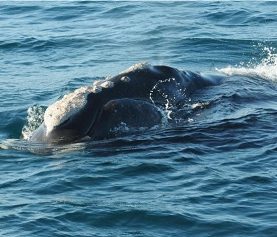
IFAW Officials Disappointed with Lobsterman Association’s Position on Whale Issue
The Yarmouth Port-based International Fund for Animal Welfare is expressing disappointment for the Maine Lobstermen’s Association decision to withdraw its support for the Take Reduction Team Agreement concerning right whales. The association withdrew support last week due to what it calls “serious flaws in the data” presented during the agreement process.,, The MLA review of the data also found that current whale protection measures have been effective. Changes to the right whale plan in 2009 and 2014 resulted in a strong downward trend in the incidence of entanglement cases involving U.S. lobster gear, from seven cases prior to 2010 to only one case since then. >click to read< 12:40
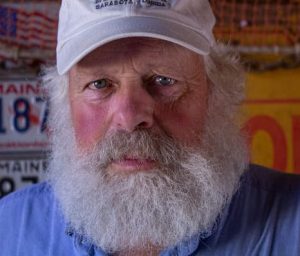
Maine fishing practices at center of debate about endangered right whale
Hutchings thinks the looming regulations to save the right whale, an endangered species, are only part of the problem with the industry. National Oceanic and Atmospheric Administration is proposing the new rules. He would like to continue fishing lobster for a few more years to be able to say he spent 50 years as a fisherman, but said he feels more financial constraints every year. “I’d hate to be a young guy starting out,” Hutchings said. “ … It (NOAA) should be more worried about the fishermen becoming extinct.” >click to read< 11:49

BOURNE: Lobstermen seek help in protecting right whales, Testimony cites burden on local industry.
Commercial lobstermen urged federal regulators Wednesday to take Canada to task for its failure to protect North Atlantic right whales and to remember that local lobstermen carrier a heavier burden of regulation than others in U.S. waters. “We as lobstermen do not want to see harm come to the right whale,” Plymouth lobsterman Tom O’Reilly said at a public forum at Upper Cape Cod Regional Technical School, the eighth in a series of meetings held this month,,, >click to read<08:40
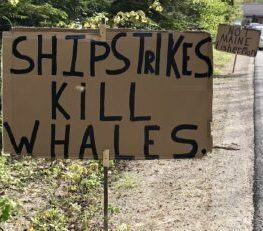
Lobstermen, environmentalists weigh in on right whale rules
Some of the largest and most powerful animal and environmental groups – including the Pew Charitable Trust, the U.S. Humane Society, the Conservation Law Foundation and Oceana – sent representatives to the hearing. They urged National Marine Fisheries Service to take immediate action to protect the whale, including proposals that even the team tasked by the fisheries service to come up with its whale protection plan had dismissed, such as offshore closures and ropeless lobster fishing. >click to read< 20:58

Maine’s lobster industry needs your help
A little over a week ago, we saw more than a thousand lobstermen flood the Stonington commercial pier. Almost the entire Maine delegation attended in person to demonstrate its support for lobstermen who are being unfairly targeted around the issue of right whale entanglement. Also speaking and demonstrating their support were Maine Governor Janet Mills, State Senate President Troy Jackson and several other state elected officials. by Julie Eaton >click to read< 12:10

Right whale discussion must not be trapped in political posturing
The state’s recent decision to buck the federal government, and to pursue its own assessment of the risk to right whales from lobster trap lines in the water, is warranted. Science, not politics, needs to guide this effort.,,, We’ve seen on the West Coast how legal pressure from environmental groups can close entire fisheries early, as it did for California crab this year. That does not mean Maine should roll over on the proposed federal regulations without science demonstrating that new regulations would be commensurate with the actual risk to whales posed by trap lines in Maine waters. >click to read< 08:28
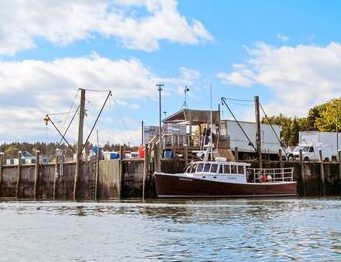
SUNDAY! Lobstermen to rally in Stonington, Collins, Pingree, and Golden to speak
Maine’s top-grossing commercial fishing port will be the site of a rally this Sunday, July 21, as fishermen from across the state come together to bring attention to an issue that could affect the livelihood of lobstermen: pending National Oceanic and Atmospheric Administration regulations to reduce the number of vertical trap lines used by lobstermen in the Gulf of Maine. The rally will also be used to educate the public about the impact those regulations could have on Maine’s fishing fleet, said Captain Julie Eaton, a lobsterman who turned an idea into an event. “We have a voice and we need to use it now,” said Eaton. “There is big power when we come together and this is a chance for our politicians to hear our voice.” >click to read< 18:18
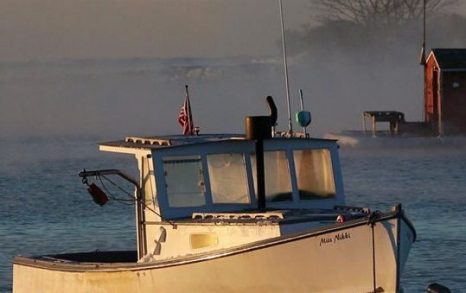
The Feds Are About To Kill Maine’s Lobster Industry And Hurt Thousands Of Workers For Some Bogus Whale Regulation
Big government overreach knows no bounds. The latest example of federal regulation that will threaten thousands of jobs and livelihoods of hardworking Americas comes from the National Oceanic and Atmospheric Administration. The NOAA says that Maine’s lobster industry is to blame for the killing of right whales, an endangered species, and has enacted regulations set to take place this September which will harm the already struggling industry. Yet, the evidence says that the proposed regulation will in no way actually help the whales and will instead only burden lobstermen. >click to read< 17:30
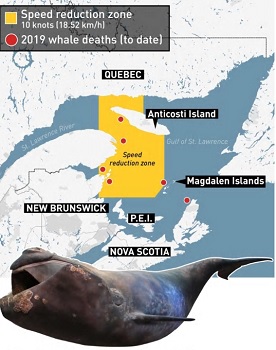
Right whale protections may not be enough, federal review shows
Measures taken to protect North Atlantic right whales in the Gulf of St. Lawrence from being struck by ships and getting caught in fishing gear may not be enough, a scientific review by Ottawa shows.,, The review was done late last year by scientists who work in federal departments and universities across Canada, looking at data compiled by marine-mammal experts over the last three years.,, Aerial surveys estimate there were at least 190 right whales in the Gulf last year, half the total known population everywhere. (and none died) >click to read< 12:57
Immediate Action Needed to Save North Atlantic Right Whales – Chris Oliver, Assistant Administrator for NOAA Fisheries >click to read<
Kennebunk Town Column: Invisible lines threaten lobster fishery – Lobstermen are facing the real threat of being forced out of business and a livelihood that they have relied on for many generations. >click to read<






































